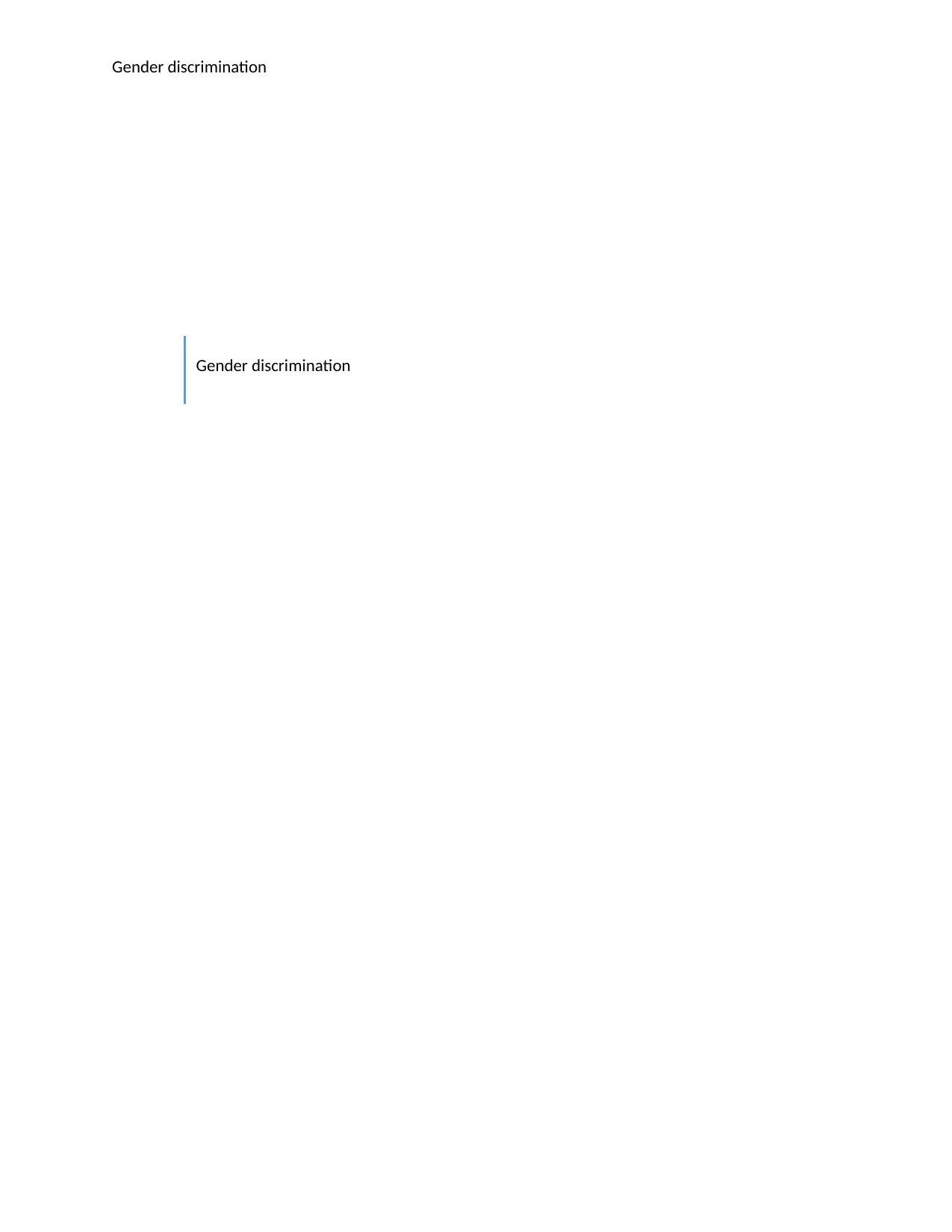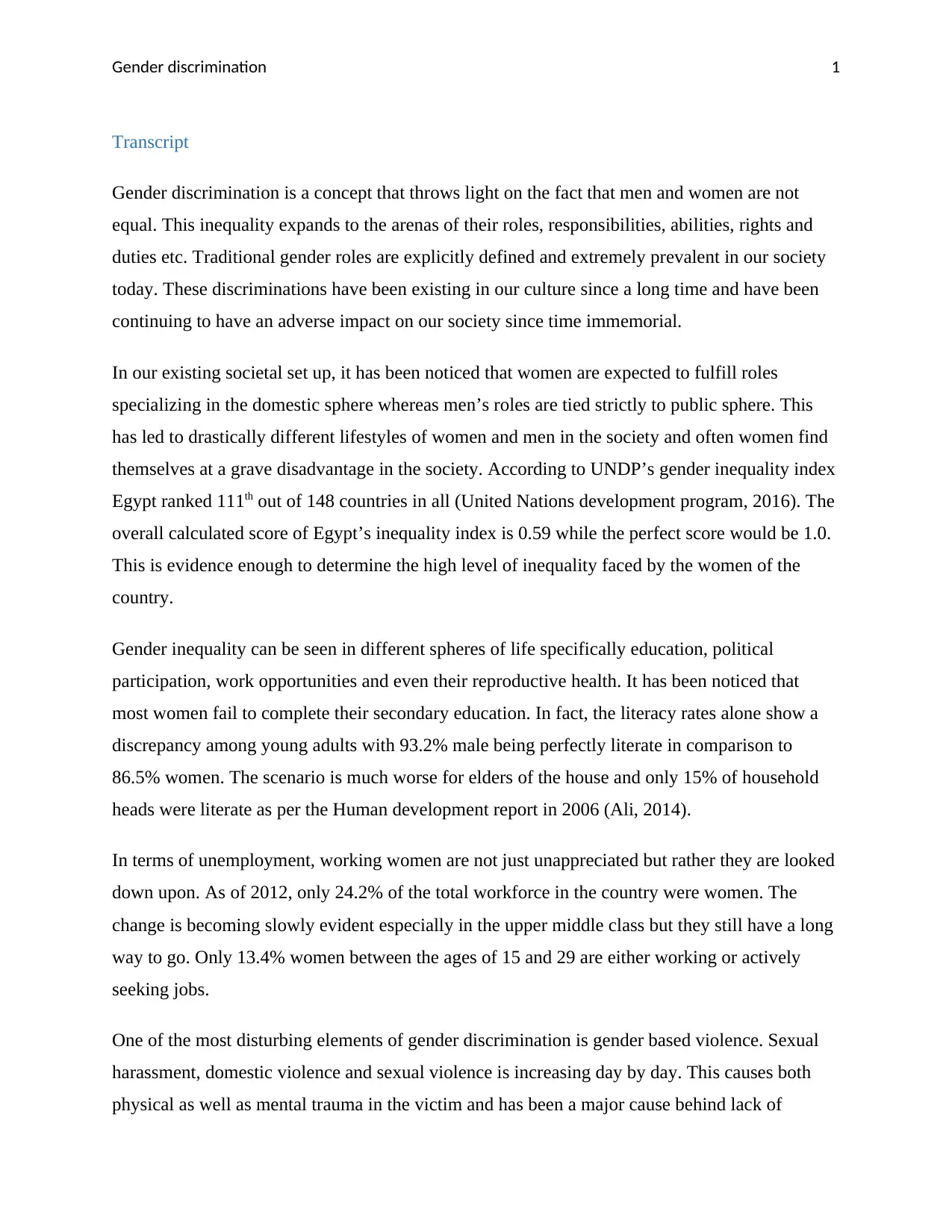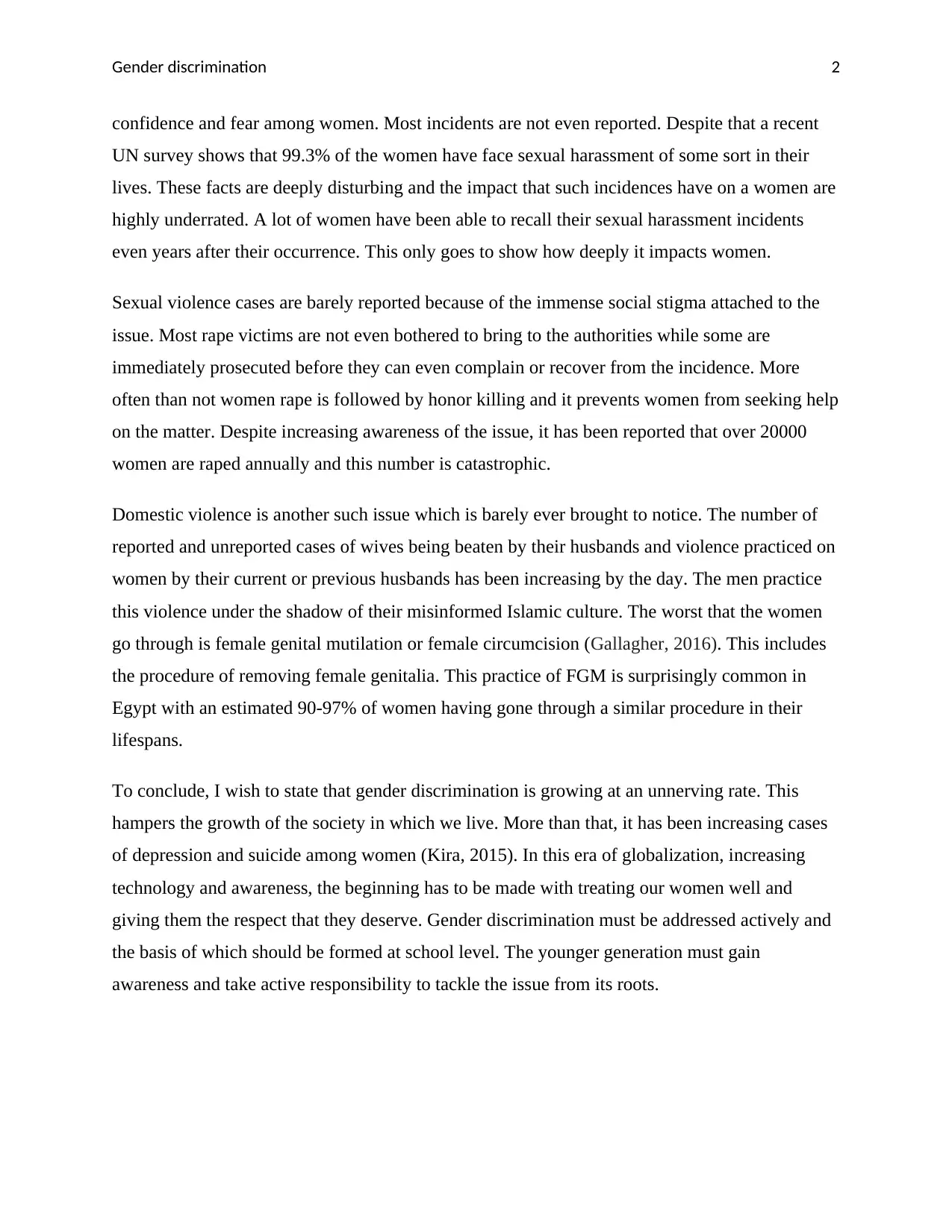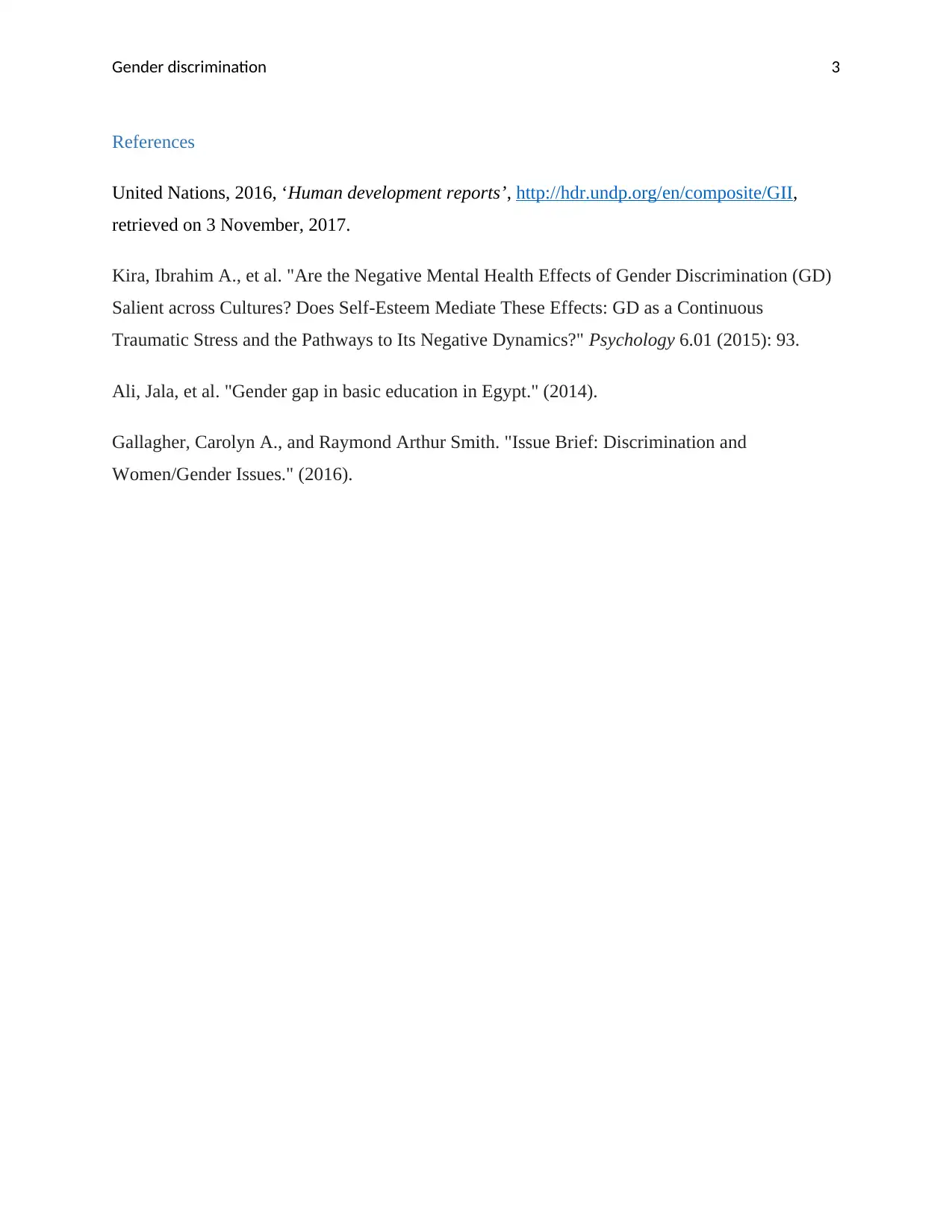Sociology Essay: Gender Discrimination and Its Societal Impact
VerifiedAdded on 2020/05/04
|4
|970
|1406
Essay
AI Summary
This essay delves into the pervasive issue of gender discrimination, focusing on its manifestations and consequences within society, with specific reference to Egypt. It examines the inequalities faced by women in various spheres, including education, political participation, and employment, citing statistics to highlight the disparity in literacy rates, unemployment, and workforce participation. The essay further explores the disturbing prevalence of gender-based violence, including sexual harassment, domestic violence, and sexual violence, and discusses the underreporting of such incidents. The essay also addresses the issue of female genital mutilation (FGM) in Egypt. The conclusion emphasizes the need to address gender discrimination actively, starting at the school level, to foster a more equitable society and prevent the adverse impacts on women's mental health and overall well-being. The essay references several studies and reports to support its arguments.
1 out of 4











![[object Object]](/_next/static/media/star-bottom.7253800d.svg)